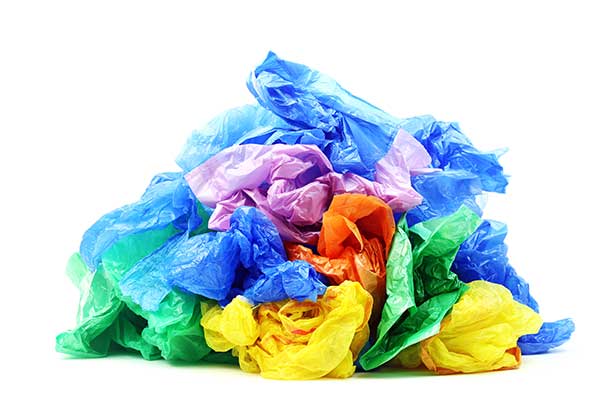Product Hub July 27, 2020
Retailer Consortium Aims to Reinvent Plastic Bag
Walmart, Target and CVS Health are among the brands committed to the Beyond the Bag Initiative, which is seeking a more sustainable solution to single-use bags.
The days of the single-use plastic bag could be numbered.
A consortium of leading retailers, including Target, Walmart and CVS Health, has joined with The Center for the Circular Economy at Closed Loop Partners to come up with viable design solutions and models to replace plastic retail bags with a more sustainable solution. Retailers in the consortium have committed more than $15 million to launch the Beyond the Bag Initiative.
According to investment firm Closed Loop Partners, the current alternatives to plastic retail bags haven’t yet garnered industry-wide support or widespread use by the public, and many still have significant environmental impacts. More than 100 billion single-use plastic bags are used in the U.S. every year, according to the Waste Management Journal, and less than 10% of those are recycled, according to the EPA. Plastic bags are routinely among the top 10 items found on beaches and waterways worldwide, where they pose a threat to wildlife.

During the three-year initiative, the consortium will seek innovative design solutions from around the world through an Innovation Challenge. Closed Loop Partners will also launch a Circular Accelerator, develop potential piloting opportunities and aim to make infrastructure investments to support the development of solutions to this issue.
“We know how important it is to bring our customers along on our sustainability journey, keeping in mind that most are looking for convenience with minimal environmental impact,” said Eileen Howard Boone, a sustainability executive at CVS Health, in a press release. “This collaboration with Target, Walmart and other like-minded retailers and innovators allows for collective reach that can be truly impactful.”
The consortium also includes Conservation International and Ocean Conservancy as environmental advisory partners that will provide perspective on environmental impacts throughout the initiative. “Putting an end to the plastic retail bag would be a game changer for the health of our planet, and it’s essential that any alternative can be easily adopted by a wide range of retailers,” said Bambi Semroc, vice president of sustainable markets and strategy at Conservation International.
The Center for Circular Economy’s first initiative, NextGen Consortium, brought food and beverage companies together to create and commercialize recyclable, compostable and/or reusable to-go cups. A dozen solutions were selected by that consortium, and several of the winning designs are being tested and piloted right now.
In recent years, a number of cities and states in the U.S., as well as governments internationally, have sought to ban single-use plastic bags to better protect the environment. However, during the coronavirus pandemic, certain states reversed or delayed their plastic bag bans, citing fears that reusable bags could spread the virus. Since then, California has reinstituted its statewide ban amid calls from critics that there’s a low chance of potential exposure to COVID-19 from handling reusable grocery bags.
The bans have been a boon to promo companies that offer reusable bags, and this year’s Counselor State of the Industry report revealed that 58% of distributors believe bag bans are beneficial for the promo products industry.

Product Hub
Find the latest in quality products, must-know trends and fresh ideas for upcoming end-buyer campaigns.
